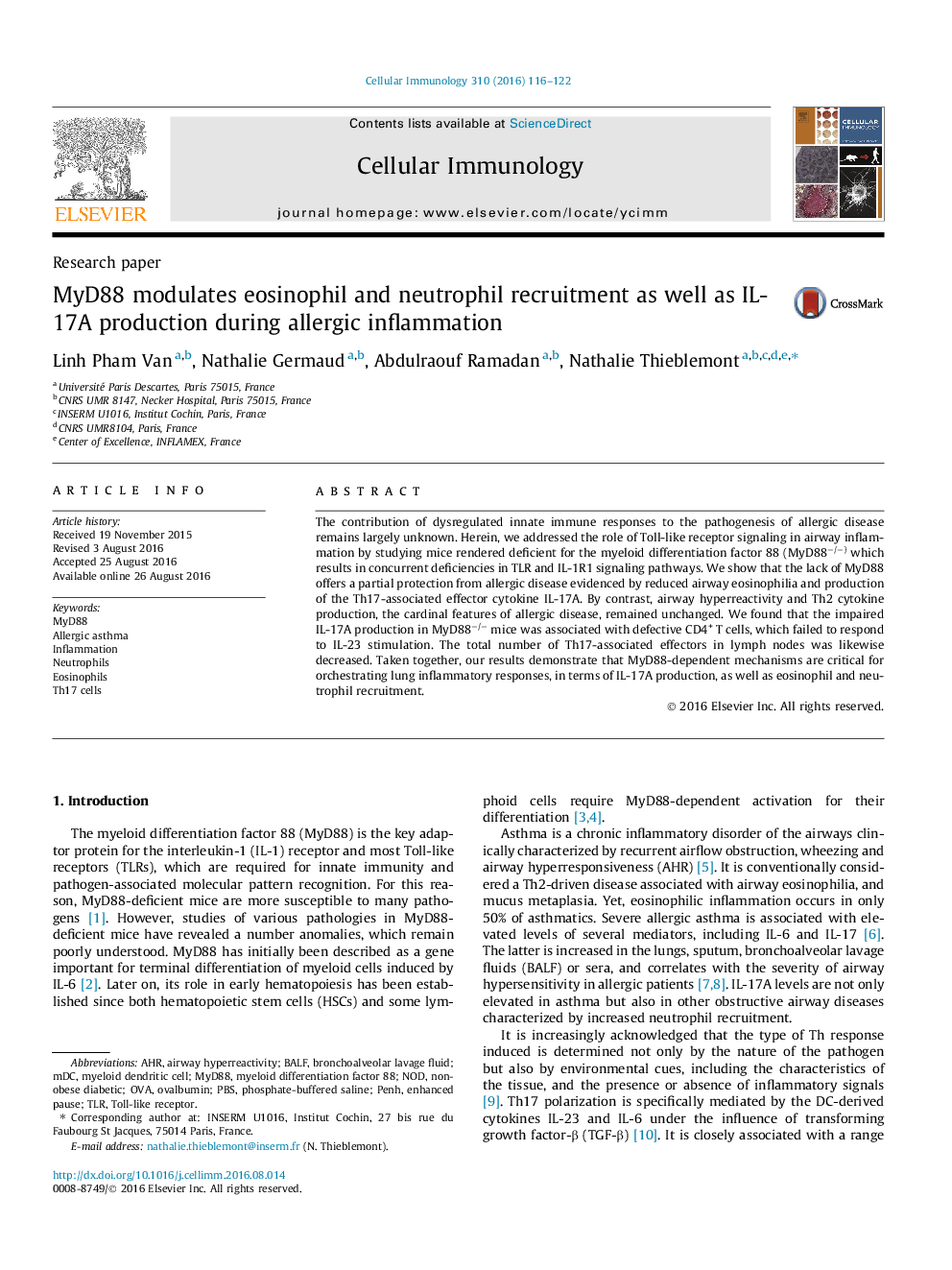| Article ID | Journal | Published Year | Pages | File Type |
|---|---|---|---|---|
| 5530724 | Cellular Immunology | 2016 | 7 Pages |
â¢The lack of MyD88 offers a partial protection from allergic disease.â¢MyD88 is critical for orchestrating eosinophil and neutrophil recruitment.â¢CD4+ T cells from MyD88â/â mice exhibited an impaired IL-17A production.â¢The number of Th17-associated effectors in LN from MyD88â/â mice is decreased.
The contribution of dysregulated innate immune responses to the pathogenesis of allergic disease remains largely unknown. Herein, we addressed the role of Toll-like receptor signaling in airway inflammation by studying mice rendered deficient for the myeloid differentiation factor 88 (MyD88â/â) which results in concurrent deficiencies in TLR and IL-1R1 signaling pathways. We show that the lack of MyD88 offers a partial protection from allergic disease evidenced by reduced airway eosinophilia and production of the Th17-associated effector cytokine IL-17A. By contrast, airway hyperreactivity and Th2 cytokine production, the cardinal features of allergic disease, remained unchanged. We found that the impaired IL-17A production in MyD88â/â mice was associated with defective CD4+ T cells, which failed to respond to IL-23 stimulation. The total number of Th17-associated effectors in lymph nodes was likewise decreased. Taken together, our results demonstrate that MyD88-dependent mechanisms are critical for orchestrating lung inflammatory responses, in terms of IL-17A production, as well as eosinophil and neutrophil recruitment.
